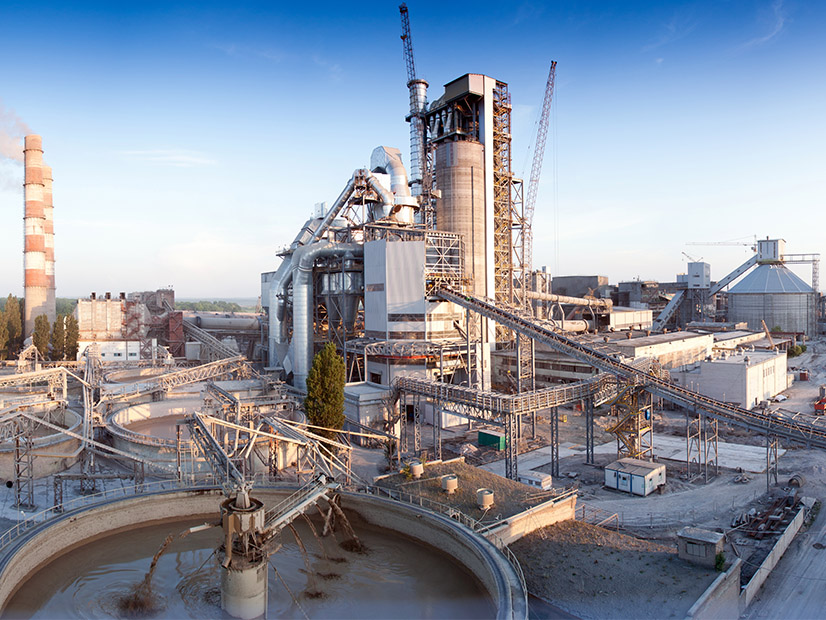The U.S. Department of Energy on Wednesday announced $6.3 billion in funding to decarbonize energy intensive industries such as aluminum, steel and cement plants, with the White House calling the new grant program the “largest investment in industrial decarbonization in American history.”
The funding is intended to “accelerate decarbonization projects and provide American industry a once-in-a-generation ‘first mover’ advantage in the emerging global clean energy economy,” a White House fact sheet published Wednesday said.
“Widespread demonstration and deployment of decarbonization projects within these industries is key to achieving [President Biden’s] goal of a net-zero carbon economy by 2050 and will help strengthen and secure America’s global leadership in manufacturing for decades to come,” it said.
The new Industrial Demonstrations Program, funded by the Infrastructure Investment and Jobs Act and the Inflation Reduction Act, will “focus on the highest emitting industries where decarbonization technologies will have the greatest impact,” DOE said in a news release.
Other industries that will be eligible for awards include chemicals and refining, food and beverage, and forest products and paper, the agency’s Office of Clean Energy Demonstrations, which will administer the grants, said on its program page. In addition to industry, grant recipients can include technology developers, universities and state and local governments, among others, OCED said.
In its funding notice, the office said it expects to make up to 55 awards of $35 million to $500 million each, with a minimum 50% cost-sharing by awardees. Priority will be given to projects that “offer deep decarbonization, timeliness, market viability and community benefits,” it said.
“Industrial emissions account for roughly one third of the nation’s carbon footprint, and the industrial sector is considered one of the most difficult to decarbonize due to the diversity of energy inputs, processes, and operations,” OCED said. “The sector’s emissions result not just from fuel for heat and power, but also from feedstocks and processes that are inherently carbon intensive.”
The latest effort is part of the Biden administration’s push to reduce emissions from “across the industrial sector, including by demonstrating decarbonization projects at scale in this decade — solutions that had previously seemed decades away,” DOE said in a news release.
“Widespread demonstration and deployment of decarbonization projects within these industries is key to achieving the President’s goal of a net-zero economy by 2050 and will help strengthen and secure America’s global leadership in manufacturing for decades to come,” it said.
Buy Clean
The Biden Administration is also trying to build a larger market for low-emissions products. It published updates Wednesday to its Buy Clean Policy, including the start of a new federal-state partnership.
The administration launched the Federal Buy Clean Initiative last year to “leverage the $630 billion of annual purchasing power” by the federal government — the “largest direct purchaser in the world and a major infrastructure funder” — to increase the use of American-made, low-carbon materials in federal construction projects, it said.
Twelve states have joined that effort, it said.
“Today, the Biden-Harris Administration is launching the Federal-State Buy Clean Partnership with commitments from … leading states,” including California, Illinois, Michigan, New Jersey, New York, Oregon and Washington, it said. “These states have committed to prioritize efforts that support the procurement of lower-carbon infrastructure materials in state-funded projects, and to collaborate with the federal government and one another to send a harmonized demand signal to the marketplace.”
The Natural Resources Defense Council praised the administration’s moves in a news release Wednesday.
“With this $6 billion funding stream and other federal incentives like Buy Clean, American manufacturers have the opportunity to produce the world’s most competitive low and zero-carbon industrial materials,” Sasha Stashwick, NRDC’s director of industrial policy, said in the release. “These are the products buyers around the world will be seeking in the clean economy.”



